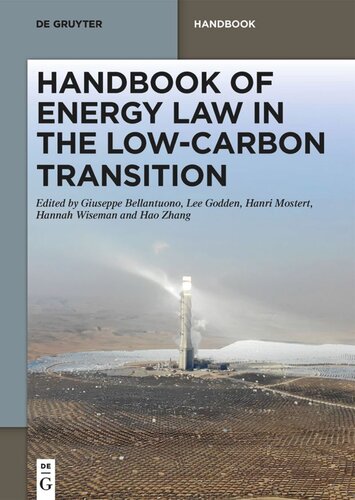

Most ebook files are in PDF format, so you can easily read them using various software such as Foxit Reader or directly on the Google Chrome browser.
Some ebook files are released by publishers in other formats such as .awz, .mobi, .epub, .fb2, etc. You may need to install specific software to read these formats on mobile/PC, such as Calibre.
Please read the tutorial at this link: https://ebookbell.com/faq
We offer FREE conversion to the popular formats you request; however, this may take some time. Therefore, right after payment, please email us, and we will try to provide the service as quickly as possible.
For some exceptional file formats or broken links (if any), please refrain from opening any disputes. Instead, email us first, and we will try to assist within a maximum of 6 hours.
EbookBell Team

0.0
0 reviewsThe low-carbon transition is ongoing everywhere. This Handbook, written by a group of senior and junior scholars from six continents and nineteen countries, explores the legal pathways of decarbonisation in the energy sector. What emerges is a composite picture. There are many roadblocks, but also a lot of legal innovation. The volume distils the legal knowledge which should help move forward the transition. Questions addressed include the differences between the decarbonization strategies of developed and developing countries, the pace of the transition, the management of multi-level governance systems, the pros and cons of different policy instruments, the planning of low-carbon infrastructures, the roles and meanings of energy justice. The Handbook can be drawn upon by legal scholars to compare decarbonisation pathways in several jurisdictions. Non-legal scholars can find information to be included in transition theories and decarbonization scenarios. Policymakers can discover contextual factors that should be taken into account when deciding how to support the transition.